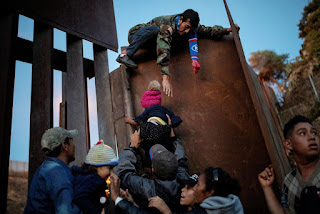In Risen (2016), A Roman Tribune, Clavius, is tasked with overseeing
Jesus’s crucifixion; more importantly, Pilote tasks his Tribune with making
sure that no one steals the body out of the tomb so no one could claim that
Jesus is arisen. This would put the Jesus movement within Judaism as much more
of a threat to Pilote as well as the Jewish leaders. More than Christians can
glean interesting lessons from the film. That is to say, it is by no means a
remake of The Greatest Story Ever Told and
Son of God.
The full essay is at "Risen."




